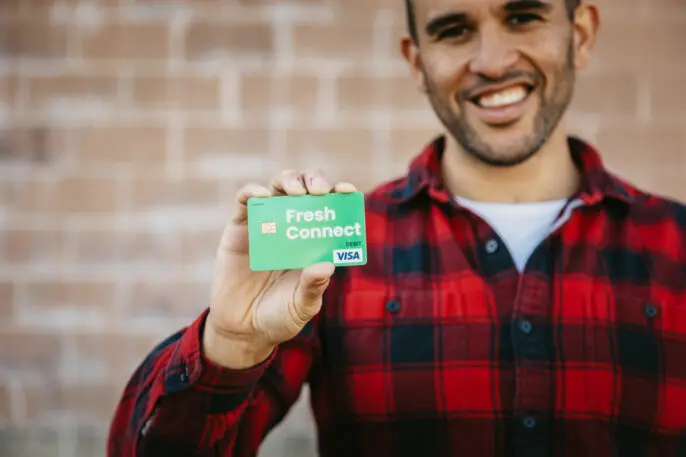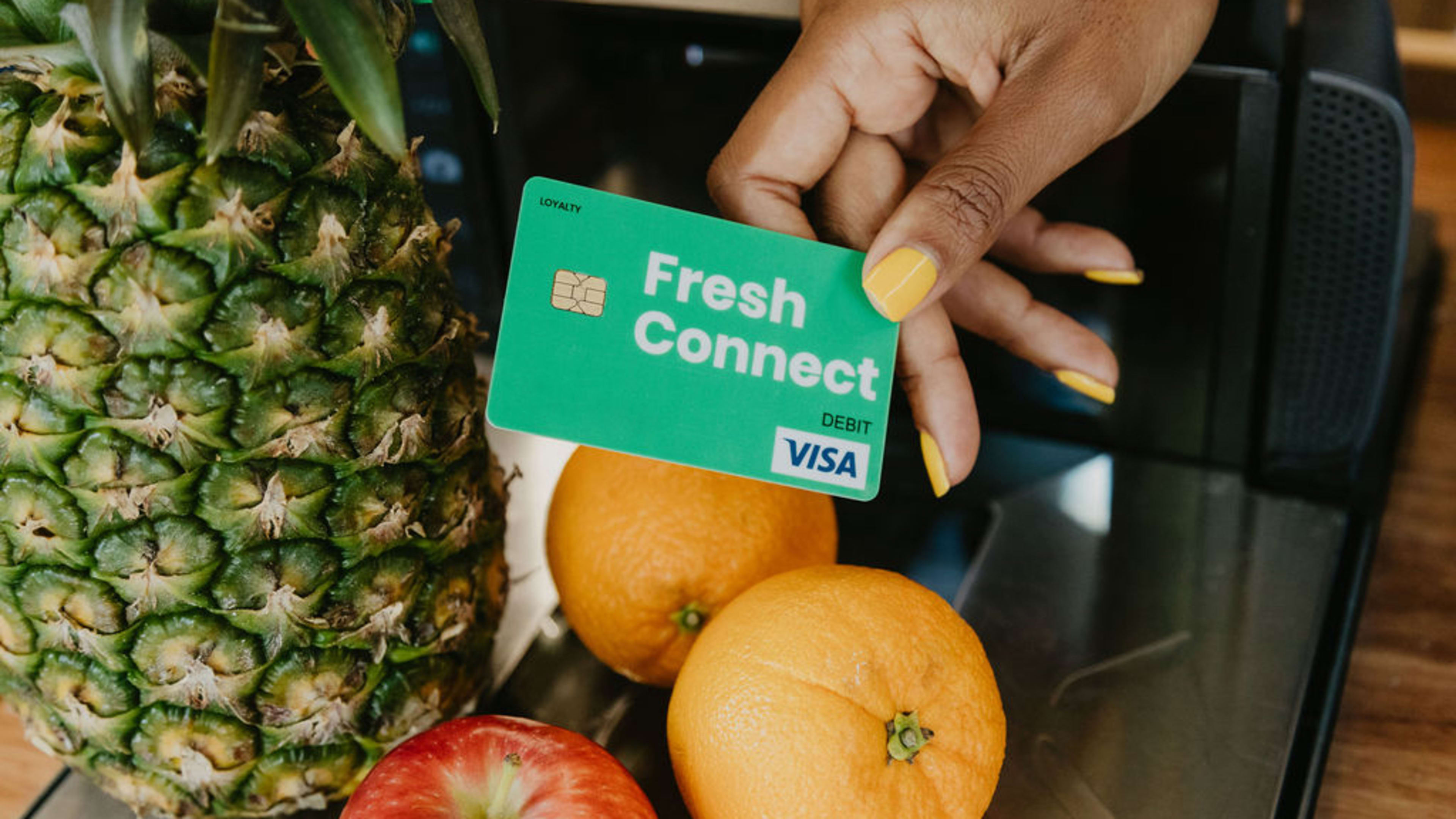When a patient experiencing food insecurity and an illness like diabetes comes to a clinic at Boston’s Mass General Brigham, they might leave with a prescription for fruit and vegetables. Around a week later, they’ll get a debit card in the mail that they can use to buy the produce at local grocery stores.
The card, called Fresh Connect, can automatically recognize fruit and vegetables when someone checks out at a store. It’s designed as a tool to help prevent and treat disease, and to help people who struggle to afford healthy food. “The reason healthcare needs to get in the game, driving billions of dollars of avoidable costs, is simply because people don’t have the money in the bank to afford all the foods that they need,” says Josh Trautwein, cofounder and CEO of About Fresh, the Boston-based nonprofit that created the debit card.
SNAP, the federal food benefits program, is a lifeline for low-income Americans, but often doesn’t go far enough. In a U.S. Department of Agriculture study, nearly 9 out of 10 participants said they faced challenges in eating healthy food; the most common barrier was the cost. With a tiny budget for groceries, the first priority is often just getting enough calories to stave off hunger, not focusing on nutrition. “Folks are forced into a set of impossible choices,” Trautwein says. While some states give SNAP recipients incentives for buying fresh produce, the Fresh Connect card can help further cover the gap.

The nonprofit started as a grassroots organization, with a retrofitted school bus that brings produce to food deserts in Boston. But it wanted to also help scale up access to healthy food. The concept of a fruit and vegetable prescription isn’t new; one U.K. pilot happened as early as 2005, and prescription produce programs exist in many states. But programs are typically limited—in some cases, a patient might get a paper coupon for a discount on produce that can only be used in one location. “Oftentimes, I think we resign ourselves to maybe just one farmers market or one retailer, which may or may not be logistically and culturally matched up with the people that we’re attempting to serve,” says Trautwein.
The debit card is designed to work with the standard payment processing system used by retailers, and has been activated at stores like Stop & Shop in Boston. At a store, shoppers bring a full cart of groceries to check out, swipe the Fresh Connect card, and it automatically covers the cost of produce before they pay the rest of the bill; the amount available varies by provider, but is often around $100 a month. The underlying platform, which is HIPAA-compliant, can track the transaction data so it’s possible to analyze potential impacts on health. One study, looking at how the card affects children’s food security, will come out this summer. Another study will soon begin with the Veterans Health Administration.
In Massachusetts, where five healthcare systems began using the card to prescribe produce in 2021, most of the funding comes from Medicaid. Community Care Cooperative (C3), an accountable care organization that works with healthcare centers in the state, piloted the card last year as part of a larger program to support patients with complex health needs.
“Sometimes what makes sense is to provide medically tailored home delivered meals or to provide produce boxes, and actually give our patients that very specific items that we want them to have,” says Kim Prendergast, vice president of social health at C3. “That works really well when we have patients who maybe have mobility challenges and can’t get out to do their own shopping. But what’s nice about the Fresh Connect card is it allows us to give people as much choice as possible.” (Another nonprofit is taking a different approach in California, with an app that patients can use to choose free home-delivered produce.)
Because of a change this year in how Medicaid funding can be used in Massachusetts, patients will only be able to use the cards for six months. Still, that can help patients establish new cooking habits, Prendergast says, and other sources of funding may also be available. In Washington, D.C., where Fresh Connect launched last November, most of the funding comes from philanthropy.
There’s an increasing recognition of the importance of food as medicine, says Trautwein. “There’s a real collective effort to think about how we reimagine healthcare financing that creates an incentive for us to permanently embed food as a feature of healthcare delivery,” he says. A Tufts University study found that healthy food prescriptions could be as cost effective as preventative drug treatments for conditions like hypertension or high cholesterol.
About Fresh wants to bring its program to more locations, and the underlying technology is designed for scale. “It creates an opportunity for us now to partner with a national network of health systems across a 50 state footprint,” Trautwein says.
Recognize your brand’s excellence by applying to this year’s Brands That Matter Awards before the early-rate deadline, May 3.
